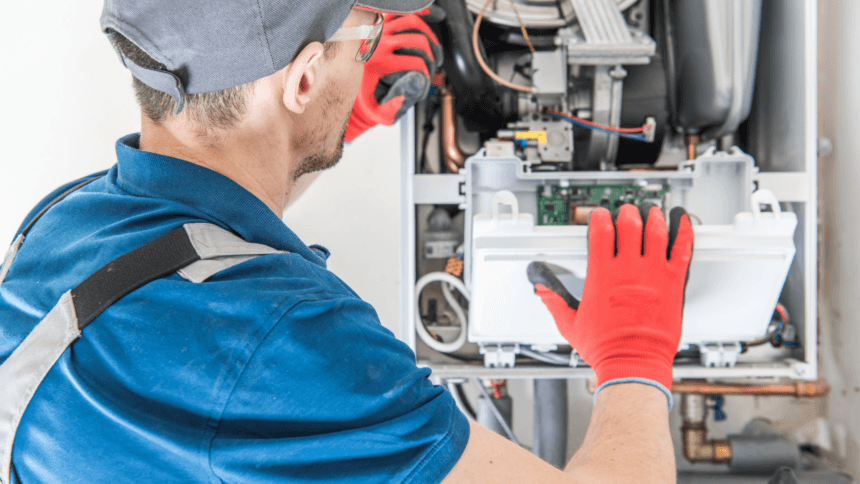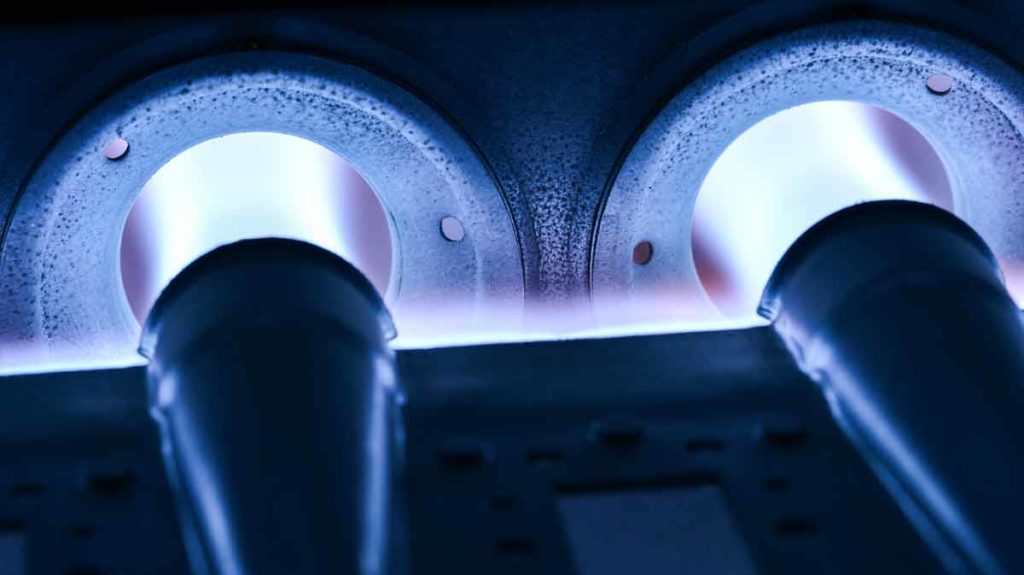How much does new furnace replacement cost?

The average replacement cost of a furnace ranges from $2,791 to $6,732, with most homeowners paying about $4,632. Prices will vary based on city, cost of living, brand, efficiency, warranties included, and more.
A new furnace will save you money in heating. However, figuring out a new furnace cost can be tricky. Use the average furnace replacement costs below to help give you a better understanding of the pricing. Then, get free estimates from furnace replacement professionals near you.
New Furnace Replacement Cost
The average cost of a new furnace ranges from $2,000 to $7,000 with most homeowners paying around $3,900. Furnace prices may vary depending on factors like brand, cost of installation, and size of your home.
Your new or replacement furnace cost will also differ based on the type of furnace you choose. HomeAdvisor offers national average pricing based on furnace type. Gas furnace installation costs between $3,800 to $10,000. Electric furnace installation costs slightly less, ranging from $2,000 to $7,000. Oil furnaces cost anywhere from $6,750 to $10,000 or more to install. For the most accurate pricing in your area, consult an HVAC professional.
How Much Does HVAC Replacement Cost?
Average Cost: $3,250 – $12,586
Like your home and needs, your HVAC project cost will be unique.
*These prices are an average estimated cost and are not guaranteed. Prices will vary based on city, cost of living, brand, efficiency, warranties included, and more.
Gas furnace prices
Skip the search and connect with an HVAC expert.
Gas furnaces cost around $3,000, on average. As the most popular type of furnace, these units are especially great for areas with harsher winters.
Electric furnace prices
Electric furnaces typically cost around $2,000 and are on the more expensive end of furnace types given the amount of electricity they use to heat a house. Electric furnaces are popular in areas with mild winter climates.
Oil furnace prices
Oil furnaces cost an average of $6,000 – much higher than the other furnace types. While oil furnaces have been around the longest, they are not widely used anymore.
Furnace Installation Cost
New furnace installation costs typically range from around $3,800 to $7,200 for labor with professional installation. Prices for installation and labor will depend on a number of factors, like brand and unit size, but generally run around $4,200.

5 factors that affect furnace costs
1. Furnace installation
Furnace installation costs include the time it takes to install the furnace, where it’s being installed, how difficult it is to install, and whether or not new ductwork needs to be installed. On average, furnace installation costs approximately $4,200. Additional factors that can affect furnace installation costs are the fuel type, brand, size and energy efficiency.
2. Furnace efficiency
Furnaces today are much more efficient than the hulking behemoths we remember from our childhood. That means that you have a host of different options when you’re looking to purchase your new unit. Furnaces with higher Fuel Utilization Efficiency Rating, or AFUE, run more efficiently and therefore cost more to purchase upfront, but end up saving you money in the long run on your utility costs. As you search for your new furnace, keep in mind that a jump from a standard-efficiency furnace to a high-efficiency furnace can cost anywhere between $400 and $1,000 more depending on the size and energy source.
Furnaces are rated by BTU, or British Thermal Units. A BTU is the amount of energy needed to raise the temperature of one pound of water one degree Fahrenheit. It is the imperial cousin of a Calorie, which is the amount of energy needed to raise one kilogram of water one degree Celsius. The stated BTU is the amount of fuel energy the furnace uses in an hour. So, a furnace with 100,000 BTU/90% AFUE will use 100,000 BTUs of fuel per hour and convert it to 90,000 BTUs of heat for your home.
3. Energy source
The type of energy you use to heat your home can be the most important choice you can make. Electric furnaces, for example, are less expensive but are also more expensive in energy usage than other types of furnaces. In areas where the winter is harsh, an electric furnace may have the highest lifetime costs. Gas furnaces are more expensive, but as natural gas is relatively cheap, they may be the most cost-effective option over the furnace’s lifetime. Oil is the most expensive in hardware cost. Use the chart at the top of the page for a better idea of furnace prices based on your energy source, which compares the average prices for a standard efficiency and high efficiency, name brand furnace, that would be best suited for use in a 1,500 to 2,000 sq. ft. home.
4. Size of furnace
Just like most things in this world, bigger means more expensive. Have your contractor perform a Manual J HVAC load test to determine the right-sized furnace for your home so you don’t waste money on a furnace that costs more upfront and increases utility bills over the years.
Depending on the furnace’s energy source, an increase in size can have different effects on a unit’s initial price. For gas furnaces, for example, a 20,000 BTU increase costs around $400 for smaller furnaces and up to $1,200 for larger furnaces, while the same capacity increase for oil furnaces stays in the $300-$600 range no matter what the unit size.
5. Do-it-yourself home energy audits
Though the cost of a new furnace is one expense to plan for, overall energy bill savings are another consideration to make as you’re considering a new furnace purchase. Home energy audits help you assess the overall efficiency of your home, and can also help you find a way to save money on your HVAC equipment. By reviewing the interior and exterior of your home you can evaluate your home’s energy efficiency and determine where you can find energy savings. Like with many projects around the house, your budget will dictate who performs your home energy audit. Depending on how much time and money you want to spend, you can either hire an HVAC professional who is energy audit certified or perform a DIY home energy audit.
If you cannot afford the $500 to $800 that most homeowners spend on a home energy audit, you can perform a home test to locate some of your home’s inefficiencies on your own.
- The first DIY home energy audit step is to review your energy bills. Energy Star has a simple and useful tool, called the Energy Star Home Energy Yardstick, that helps you compare your energy bills to similar homes across the country. If your bills are considerably higher than similar homes or they have been steadily increasing, you may have a problem.
- Walk through your home and ensure that your doors and windows are free of any drafts. Poor insulation and gaps in your windows and doors let indoor air escape and outdoor air in, costing you money.
- Caulk and seal any drafty windows or doors. This is one of the easiest things you can do to save energy and money!
Your home is your greatest investment. Buying the right furnace is an excellent way to ensure that your home and loved ones will be comfortable, no matter what comes outside. It is essential that you speak to a qualified HVAC expert or professional to determine accurate furnace prices. One of the best ways to find information about dealers and specialists near you is HVAC.com.